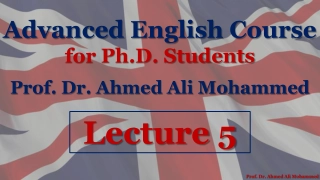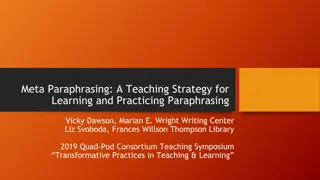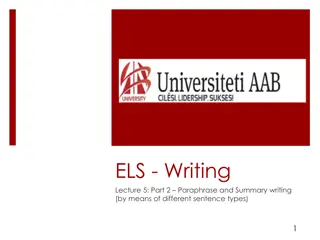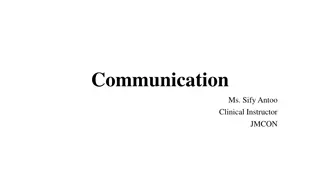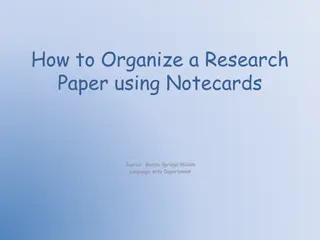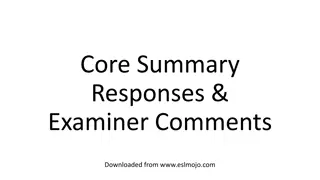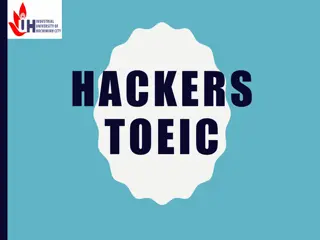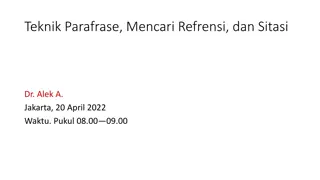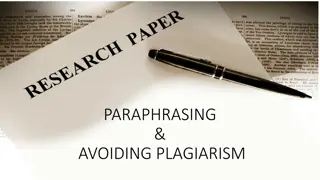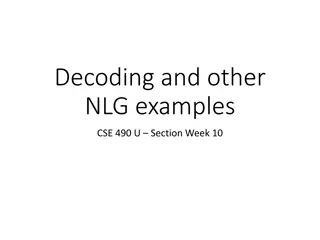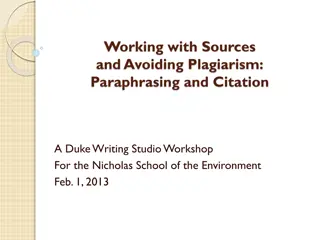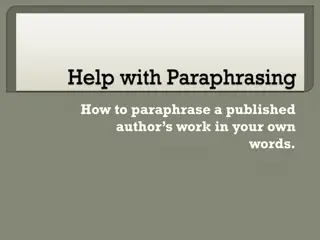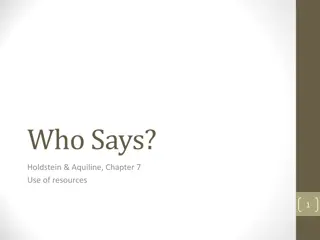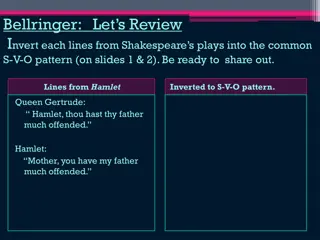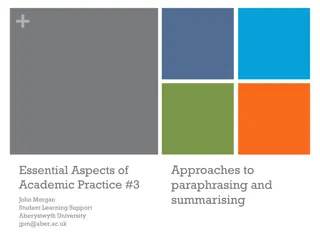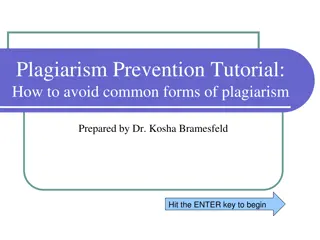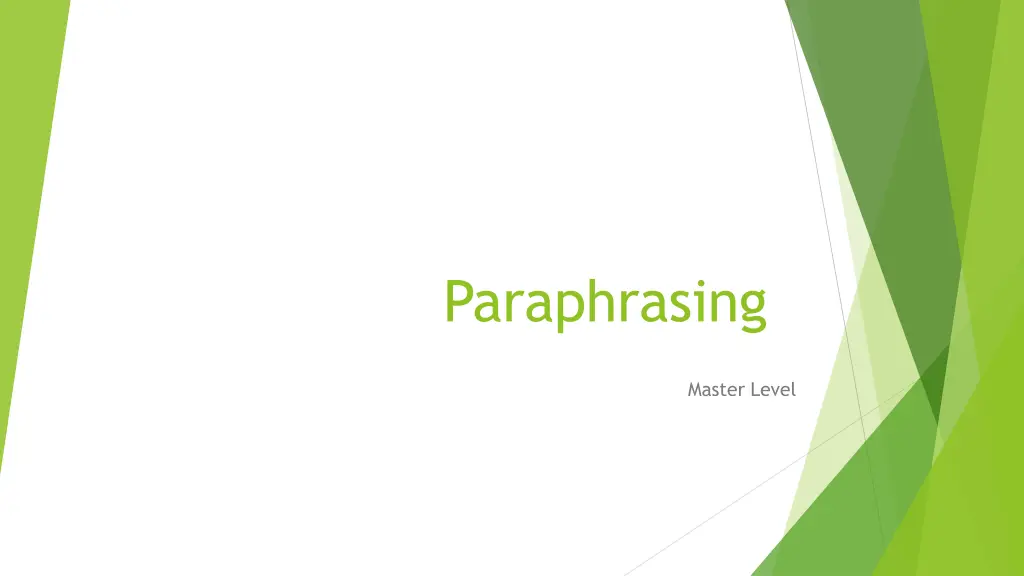
Effective Paraphrasing Techniques for Academic Writing
Master the art of paraphrasing to avoid plagiarism and demonstrate understanding of source material in academic writing. Learn how to change vocabulary, word class, and word order effectively. Practice techniques such as using synonyms and rearranging words to create accurate and original paraphrases.
Download Presentation

Please find below an Image/Link to download the presentation.
The content on the website is provided AS IS for your information and personal use only. It may not be sold, licensed, or shared on other websites without obtaining consent from the author. If you encounter any issues during the download, it is possible that the publisher has removed the file from their server.
You are allowed to download the files provided on this website for personal or commercial use, subject to the condition that they are used lawfully. All files are the property of their respective owners.
The content on the website is provided AS IS for your information and personal use only. It may not be sold, licensed, or shared on other websites without obtaining consent from the author.
E N D
Presentation Transcript
Paraphrasing Master Level
Paraphrasing means changing the wording of a text so that it is significantly different from the original source, without changing the meaning.
Effective paraphrasing. is a key academic skill needed to avoid the risk of plagiarism: demonstrates your understanding of a source.
Paraphrasing and summarising. normally used together in essay writing, but while summarising aims to reduce information to a suitable length, paraphrasing attempts to restate the relevant information
An example. There has been much debate about the reasons for the industrial revolution happening in eighteenth-century Britain, rather than in France or Germany. Could be paraphrased
Why the industrial revolution occurred in Britain in the eighteenth century, instead of on the continent, has been the subject of considerable discussion.
An effective paraphrase.. In groups, or alone and with reference to the previous example, discuss what an effective paraphrase should contain
has a different structure to the original has mainly different vocabulary retains the same meaning keeps some phrases from the original that are in common use e.g. industrial revolution or eighteenth century
Techniques for paraphrasing (a) Changing vocabulary by using synonyms: argues > claims/ eighteenth century > 1700s/ wages > labour costs/ economise > saving NB. Do not attempt to paraphrase every word, since some have no true synonym, e.g. demand, economy, energy (b) Changing word class: explanation (n.) > explain (v.) / mechanical (adj.) > mechanise (v.) / profitable (adj.) > profitability (n.) (c) Changing word order: . . . the best explanation for the British location of the industrial revolution is found by studying demand factors. > A focus on demand may help explain the UK origin of the industrial revolution.

